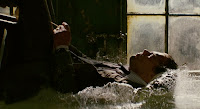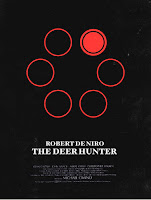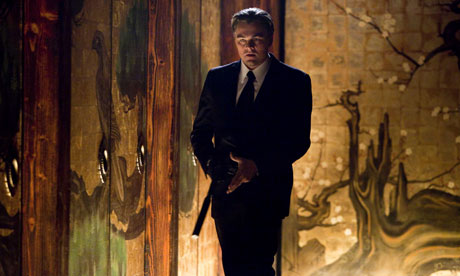 |
| Also, footballs should not be thrown on roofs. |
Movies get a lot wrong. And when I say a lot I mean a lot.
Jumping off of my piece from the other day, what you make of those mistakes is up to you. I try to avoid them because while they are probably better to know, they can also ruin the movie. However, they can also be hilarious depending on how wrong they are. I decided to do some research on IMDB, and I compiled ten of my favorite mistakes, and another list of five “mistakes.” Did I just ruin your favorite movie for you? Well good, it’s ruined for me, too. Let’s bond over sadness.
Read the list below:
21 Jump Street- “ In 2010, the Supreme Court ruled that if a cop neglects to read your Miranda rights, that is not necessarily grounds for release from charges. So the cops’ mistake at the beginning is not accurate.” (IMDB)
Casablanca: “There was never any such thing as a “letter of transit.” (IMDB)
Django Unchained: “Stephen (Samuel L. Jackson) uses the word “motherfucker” four times throughout the film, This is a linguistic anachronism as the word didn’t exist until the WWI era (the Oxford English dictionary lists the earliest use in 1918).” (IMDB)
No Country for Old Men: “In the scene where Anton is chasing Llewelyn through the streets at night, a modern day Dominos Pizza sign can be seen in the background.” (IMDB) [Note: I would pay lots of money for a scene where Josh Brolin and Javier Bardem eat Domino's together while in character.]
The Big Lebowski: “The first sex offender laws, like those which would require Jesus Quintana to notify his neighbors of his paedophilic record, weren’t implemented in California until 1996.” (IMDB)
The Room: “Johnny claims that he couldn’t cash a check because it was “out of state.” However, it is entirely possible to cash an out of state check. Johnny, a banker, should know this.” (IMDB)
The Room: “Mark asks Lisa “what’s going on” with “the candles [and] the music”, but neither music nor candles are present.” (IMDB)
Braveheart: “Primae noctis has never been used in the entire history of the British Isles.” (IMDB)
Braveheart: “In reality most of the Irish fought against Wallace.” (IMDB)
Braveheart: “At the funeral of Wallace’s father, the child Murron plucks a thistle, the national flower of Scotland, and gives it to the boy Wallace. This is both physically impossible (every species of thistle in the British Isles is so prickly and so tough-stemmed that you could only wrench one from its stem wearing protective gloves) and symbolically absurd (the toughness and prickliness of the thistle is its whole point as a symbol of Scottishness).” (IMDB) [Note: I really wanted to put "Braveheart" in its place. And I guess "The Room" needed to be, too.]
And Five “Mistakes”
Elysium: There are actually no machines that exist in real life that can cure both cancer and paralyzed legs.
Inception: When traveling through other people’s dreams, people do not actually yell confusing lines of exposition at each other.
Inglourious Basterds: Hitler was not actually shot hundreds of times in the face by a man named the Bear Jew. In fact, Bears are legally not allowed to be Jewish.
Taxi Driver: Robert De Niro is not actually a taxi driver. He is, in fact, a very talented actor.
There Will Be Blood: In one scene, Daniel Plainview tells Eli Sunday that he is going to bury him underground. In fact, the practice of burying the dead underground did not exist until Warren G. Harding passed it into international law on July 17, 1923. Before that, bodies were stacked up in wheelbarrows, similar to what is seen in “Monty Python and the Holy Grail.”
What are some of your favorite mistakes in movies?



































